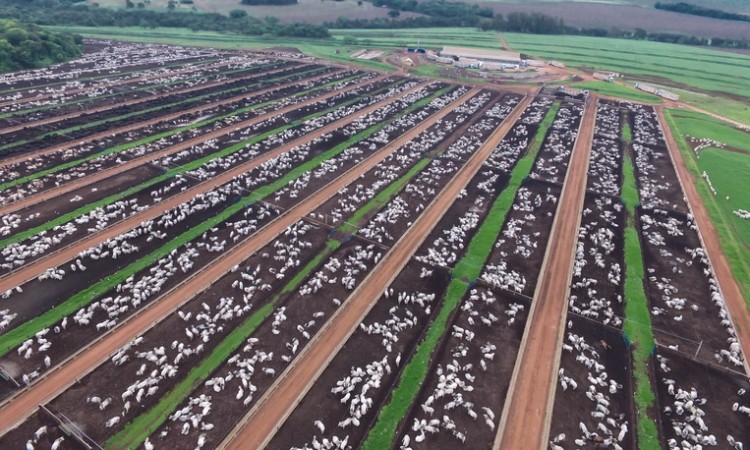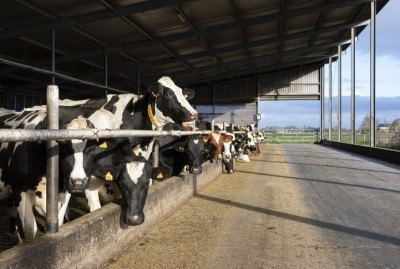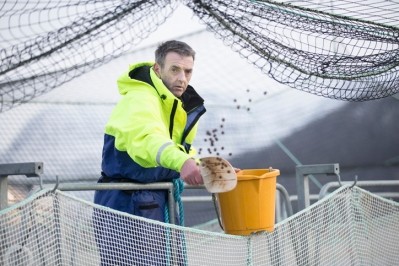COP26: JBS partners with DSM to reduce enteric methane emissions at global scale

DSM and JBS will jointly develop the implementation of Bovaer in the production chain.
The objective, they said, is to promote a transition of the global beef industry, to obtain, through nutrition, "a safe path" to reduce methane emissions.
The agreement was signed at COP26 in Glasgow, Scotland.
Bovaer is added to animal feed, with the potential to reduce up to 90% of enteric methane emissions, as demonstrated recently in an Australian beef feedlot study, said DSM. "A quarter of a teaspoon of the additive a day, per animal, inhibits the enzyme that activates the production of methane gas in the stomach of the ruminant. The effect is immediate and, if use is interrupted, the emission of gases is fully resumed."
The feed supplement was granted full regulatory approval by Brazil and Chile in September 2021, for use in ruminants. Those were the first market authorizations for the product. DSM has been engaged in extensive discussions with a number of long-term partners in the run-up to market launch of the feed supplement.
Mark van Nieuwland, VP and program director at DSM, commenting on the deal, on social media, said COP26 in Scotland enabled JBS and DSM to formalize their plans.
The partnership, he added, was "an exciting step forward, particularly in light of the Global Methane Pledge which was announced earlier this week at COP26 by 103 countries. It's also a great example of how we bring one of our [DSM's] food systems commitments [enabling double-digit on-farm livestock emission reductions], into action.”
Research trials
The approval of Bovaer in Brazil and Chile followed 10 years of research on the additive including 45 on-farm trials in 13 countries across four continents, and more than 48 peer-reviewed studies.
A beef trial with the additive at Sao Paolo State University (UNESP) in Brazil, conducted in 2016-2017, showed enteric methane emission reductions up to 55%, said DSM.
That country has one of the largest cattle herds in the world, at around 230 million, ranking number two globally in terms of beef production while coming in at number four in dairy production.
"Brazil has the biggest commercial herd worldwide. Greenhouse gas (GHG) emissions from livestock represent around 19,2% (about 280 Mt CO2 eq/year) of the total national greenhouse gas emissions. With the proven effect of Bovaer to reduce methane emissions by approximately 30% for dairy cows and even higher percentages for beef cows, the potential contribution to greenhouse gas emission reduction in Brazil is significant and has potentially a global impact,” van Nieuwland remarked in September.
Chile, he noted, has a cattle herd of about 2.9 million, while GHG emissions from its agricultural sector represents 15% of the total GHG emissions nationally. "Of that, 34.5% consists of methane from enteric fermentation from livestock (around 5 Mt CO2 eq/year)."
So, likewise, the feed additive has the potential to become a key tool to reduce such emissions generated by the farming sector in Chile, he said.
DSM has filed for registration in a number of other markets and expects further approvals for Bovaer in the EU, Latin America and Oceania over the coming months.















